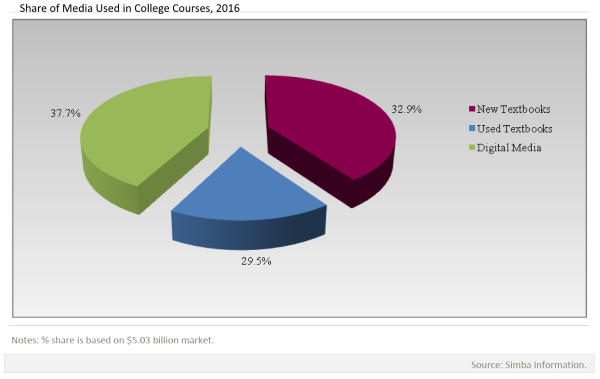The Affordable Textbook Act is Reintroduced
by Sarah Schmidt
September 29, 2017

Conjuring up Jack Nicholson in “The Shining” or repetitive efforts to repeal The Affordable Care Act, The Affordable College Textbook Act was re-introduced September 26 in Congress and aims to helps college students manage costs by making high quality textbooks easily accessible to students, professors, and the public for free.
Proponents of the Affordable Textbook Act, which include U.S. senators Dick Durbin (D-IL), Al Franken (D-MN), and Angus King (I-ME), and U.S. representatives Jared Polis (D-CO-02) and Kyrsten Sinema, say that high quality, open access textbooks have the potential to improve learning, education access, and college affordability for more students.
The Affordable College Textbook Act would create a competitive grant program to support the creation and expansion of open college textbooks - or textbooks available under an open license - and calls for free access to these textbooks. The bill expands on provisions in the 2008 Higher Education Opportunity Act, which mandated that colleges and publishers provide more information about textbook costs and new content so that students could better manage costs.
The Affordable College Textbook Act Incites Reactions
The Affordable College Textbook Act has the support of a number of organizations, including:
- U.S. PIRG
- Scholarly Publishing & Academic Resources Coalition
- National Association of College Stores
- Association of Big Ten Students
- Young Invincibles
- American Federation of Teachers
- National Education Association
- Service Employees International Union
- American Association of Community Colleges
- Association of Community College Trustees
- UNCF
- Creative Commons
- Association of Research Libraries
- The Association of College & Research Libraries
Daniel Williamson, managing director of non-profit Open Stax, out of Rice University (Houston), applauded the affordable textbook act's reintroduction, saying that a grant program could help “incentivize the use of open educational resources.” Williamson also suggested that non-fiscal policies could help lower costs, such as promoting the visibility of OER-enabled courses by requiring bookstores and institutions to publish a textbook list with a course schedule to allow students to search for courses that use OER.
Course materials distributors are working to widen the public visibility of OERs; Barnes & Noble Education (Basking Ridge, NJ) launched their "Barnes & Noble Education Courseware" platform in Nov. '16, which combines curated OER, original content created by faculty, and tools that enable instructors personalize learning materials. Barnes & Noble's courseware was available for 10 general education courses at B&N Ed. stores at launch.
Commercial education publishers generally view open educational resources as competition, although the Association of American Publishers is not opposed to OER. “The use of copyrighted materials and OER is a ‘both/and’ not an ‘either/or’ proposition,” David Anderson, executive director, Higher Education at AAP, said in an email statement to Educational Marketer.
“We do object, however, to the use of taxpayer dollars to subsidize OER. Government should not place its thumb on the scales of the marketplace to favor one group over another. Unfortunately, this proposed legislation does just that.”
Anderson also noted that commercial publishers’ new generation of digital learning materials - covered in Simba Information's upcoming College Course Materials Market Trends & Forecast 2017 report - allow professors to modify them with both OER and copyrighted materials.
“We are actively developing a variety of OER-based offerings, including products that take pure OER and combine with our technology to improve efficacy and outcomes,” Cengage president and CEO Michael Hansen wrote in the forward to The OER Moment, a compilation of articles related to OER published by Inside Higher Education in summer 2017.
“But at the same time, we are experimenting with augmenting OER with other content to find affordable solutions for students,” Hansen continued. “We know that OER can be a powerful complement to proprietary content.”
Further information on the college course materials market can be found at: https://www.simbainformation.com/College-course-Materials-10628489/.
Have unique research needs?
Freedonia Custom Research listens intently to your needs and objectives. Then we work diligently to define and deliver a service to meet them.Subscribe to Our Blog
Stay up to date with the latest information about new market research and news in areas relevant to your business from our analysts and team members.Simba Information Blog Subscription
Provide the following details to subscribe.